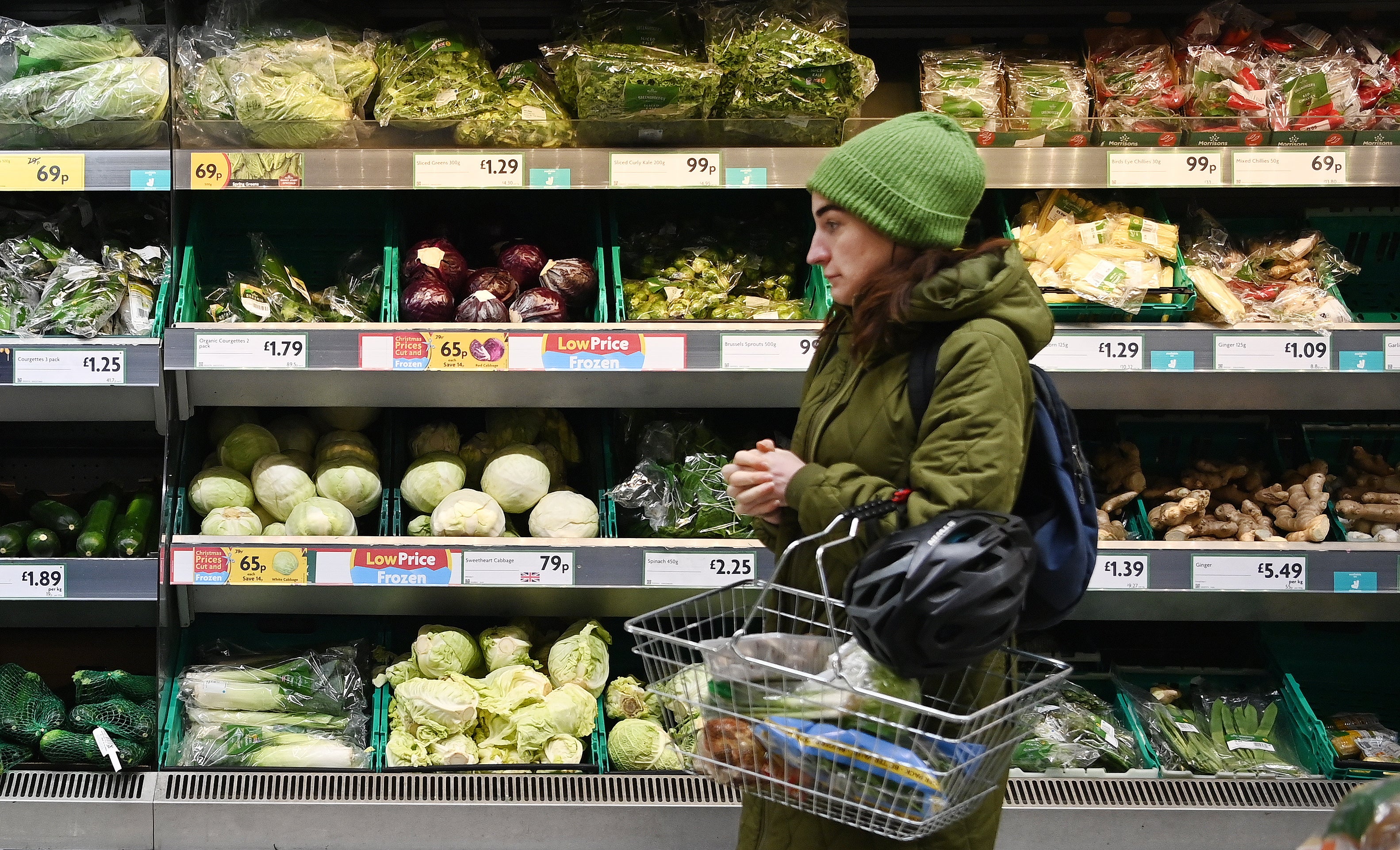Don’t be fooled by the UK economy’s October bounceback
Improvement was on the cards after a grim September hit by the royal funeral. Growth of 0.5 per cent was better than expected. But the chancellor is right to warn of a hard road ahead, argues James Moore


If only we could celebrate the Office for National Statistics (ONS) saying the economy grew by a handy 0.5 per cent in October – compared to the previous month – as a winter warmer, with large parts of the country blanketed by snow.
Sadly, I’m afraid we can’t.
October’s performance was welcome, for sure. However, a rebound was expected after a grim September, during which the royal funeral did an even better job than the snow at bringing UK plc to a juddering halt. As a result of it, and other headwinds, the economy contracted by 0.6 per cent.
October’s return to growth, of 0.5 per cent, was a tad better than the 0.4 per cent predicted by a Reuters poll of economists. Outperforming expectations is always welcome, although it should also be noted that this is merely a first estimate. The ONS could yet revise the number down or up.
What October did not do was change the wider picture. Even with its growth, the economy still contracted over the three months from August to October, by 0.3 per cent.
Again, that was a tad better than the Reuters poll had predicted (a fall of 0.4 per cent) but that comes as slim comfort. It’s a bit like finding a threadbare blanket in the airing cupboard when the heating’s on the blink.
Britain’s biggest economic problem – its persistently high inflation rate – will bare its claws once again on Wednesday when the November figure is revealed.
The Bank of England’s efforts to contain it are expected to result in a further 0.5 per cent rise in interest rates on Thursday. True, that’s not as bad as the 0.75-point rise agreed at the last meeting of the Monetary Policy Committee (MPC). A surprise may be possible too, the MPC has lately been suggesting the possible interest rate peak could be less than the 4.5 per cent the City has been expecting.
But increasing rates by any amount in the midst of a nasty downturn is not a position anyone wants to be in, the MPC least of all. Economists have a name for stubborn inflation and the squeeze created by tightening monetary policy in the middle of a downturn: stagflation. But “ugh” would do as well.
Japan has some unpleasant recent history with it but Japan was in a much better place going into its “lost decade” than the UK is right now. To meet the technical definition of being in recession, an economy obviously needs to record two consecutive quarters in the red. That box has not yet been officially ticked by the UK. But the red mark is coming. Count on it.
It is for that reason that the chancellor, Jeremy Hunt, warned of “a hard road ahead” despite the October figure. Wisely. It really doesn’t do to be celebrating a ray of sunshine when there’s a snow cloud coming in, ready to tip its contents all over you.
Hunt should be shivering right now. The real-world cold snap, which has opened up the potential for mothballed, polluting, coal-fired power plants coming back on stream, won’t help with the cost of the energy support package he’s overseeing. It is also bound to chill economic activity, albeit only temporarily.
But let’s be clear: it would be quite wrong to suggest that the chancellor and the government are mere pawns here, capable of no more than managing what the world delivers to them.
Start with the strikes. Yes, industrial action is making a bad situation worse. But despite the bellicose rhetoric from the government and its supporters in the media, the public largely recognises that this is far from a case of nasty union barons trying to crash the country. The workers walking out are in the same position they are in, with inflation eating into their living standards, in particular those in the public sector. Its workers’ pay is still below financial crisis levels in real terms.
Ministers’ protestations about it not being their place to intervene ring hollow, particularly in the case of the public sector. It is ministers who ultimately sign off on public sector pay settlements.
Once again, this is a situation where it seems that the Conservative Party’s fractious internal politics – with the right making macho demands to “get tough” with union bosses – are taking precedence over the national interest.
The mood music over the impasse with our biggest trading partner, the European Union, over the Northern Ireland protocol has improved. But it’s by no means clear that the Tory party will allow Rishi Sunak to forge the sort of compromise that would ultimately benefit the UK as a whole.
October’s GDP number is no more than a brief sparkle in the snow, which has really only just started to fall on the UK economy. As it settles, we will hear a lot of talk about global events, wholesale energy prices, Vladimir Putin and so on.
They would cause problems for whoever was in Downing Street. But make no mistake, Sunak, Hunt and company have the capacity to make the current situation either better or worse.
They seem bent upon picking the wrong answer whenever they’re faced with the choice to either boost or beat down the economy.
They should be held to account for the results of those choices as the rotten numbers roll in.






Join our commenting forum
Join thought-provoking conversations, follow other Independent readers and see their replies
Comments